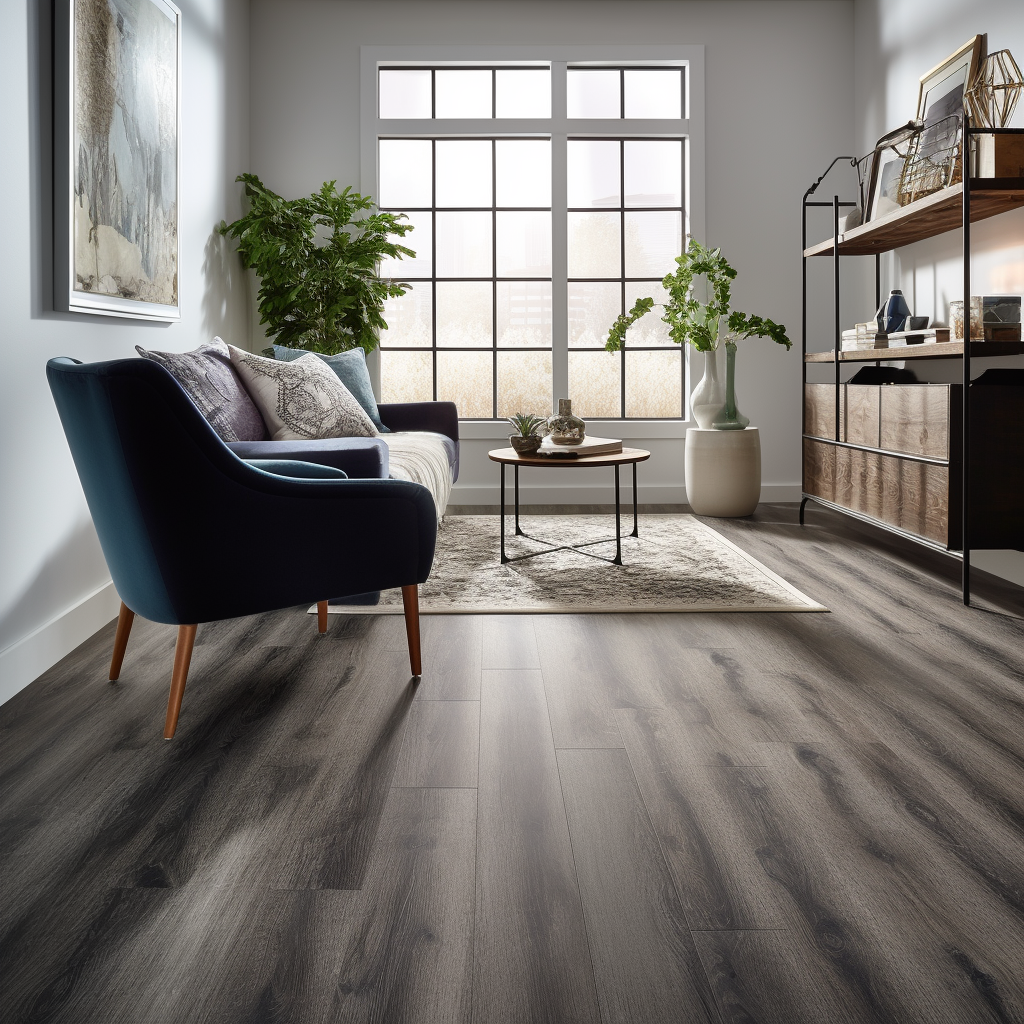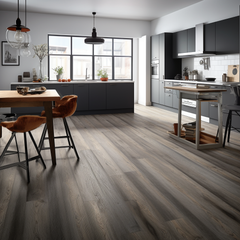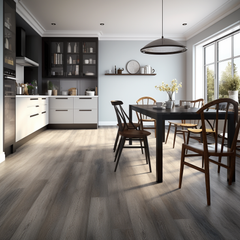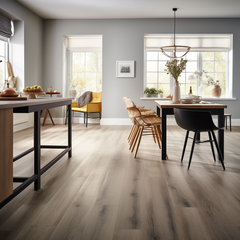







Indoor Usage Luxury SPC LVT Rigid Vinyl Wood Floor Plank Tile Plastic Floor Loose Lay PVC Vinyl Flooring
Couldn't load pickup availability
Description
xProduct Data Sheet
| Product Name | LVT Flooring |
| Color | Accept Customization |
| Overall Thickness | 1.5mm, 2mm, 2.5mm, 3.0mm, 4.0mm, 5.0mm or upon request |
| Wear Layer Thickness | 0.07mm, 0.1mm, 0.2mm, 0.3mm, 0.55mm, 0.7mm |
| Surface Texture | Wood grain, Light wood grain, handscraped, EIR, Stone, Leather, Marble, Carpet |
| Finish | UV (Matt, semi-matt, light) |
| Paving Method | Click System, Dry back, Self adhesive, Loose lay |
| Size | 6"×36"/6"×48"/7"×48" |
| Useage | Bedroom, Kitchen, Basements, Home, School, Hospital, Mall, Commercial to use. |
| Features | Waterproof, Wear resistant, Anti-slip, Moisture Proof, Fire resistant,durable, anti-scratch, anti-bacterail. |




Environmental Benefits of LVT Flooring
Luxury Vinyl Tile (LVT) flooring offers environmental benefits that make it a sustainable choice for eco-conscious consumers. Here are some key features that highlight the environmental benefits of LVT flooring:
-
Recycled Materials: Many manufacturers of LVT flooring incorporate recycled materials into their production processes, reducing the demand for virgin resources and diverting waste from landfills. These recycled materials may include post-consumer plastics, reclaimed wood fibers, and recycled rubber.
-
Low VOC Emissions: LVT flooring is engineered to emit low levels of volatile organic compounds (VOCs), harmful chemicals that can off-gas into the indoor environment and contribute to poor air quality. By minimizing VOC emissions, LVT flooring promotes healthier indoor air quality and reduces the risk of respiratory issues for occupants.
-
Water-Based Inks and Coatings: The use of water-based inks and coatings in the printing and finishing of LVT flooring minimizes the release of toxic solvents and chemicals into the environment. These eco-friendly alternatives provide vibrant colors and durable finishes while minimizing the environmental impact of production processes.
-
Energy-Efficient Manufacturing: Many LVT flooring manufacturers invest in energy-efficient manufacturing technologies and practices to reduce their carbon footprint. By optimizing energy usage, implementing renewable energy sources, and improving production efficiency, manufacturers minimize greenhouse gas emissions and conserve natural resources.
-
Closed-Loop Recycling Systems: Some LVT flooring manufacturers implement closed-loop recycling systems, allowing them to reclaim and reuse materials from production waste streams. This approach reduces the need for virgin materials, conserves energy, and minimizes waste generation throughout the manufacturing process.
In summary, the environmental benefits of LVT flooring make it a sustainable choice for environmentally conscious consumers, offering recycled materials, low VOC emissions, water-based coatings, energy-efficient manufacturing, and closed-loop recycling systems.
Related Products
Recently Viewed Products

- Choosing a selection results in a full page refresh.
